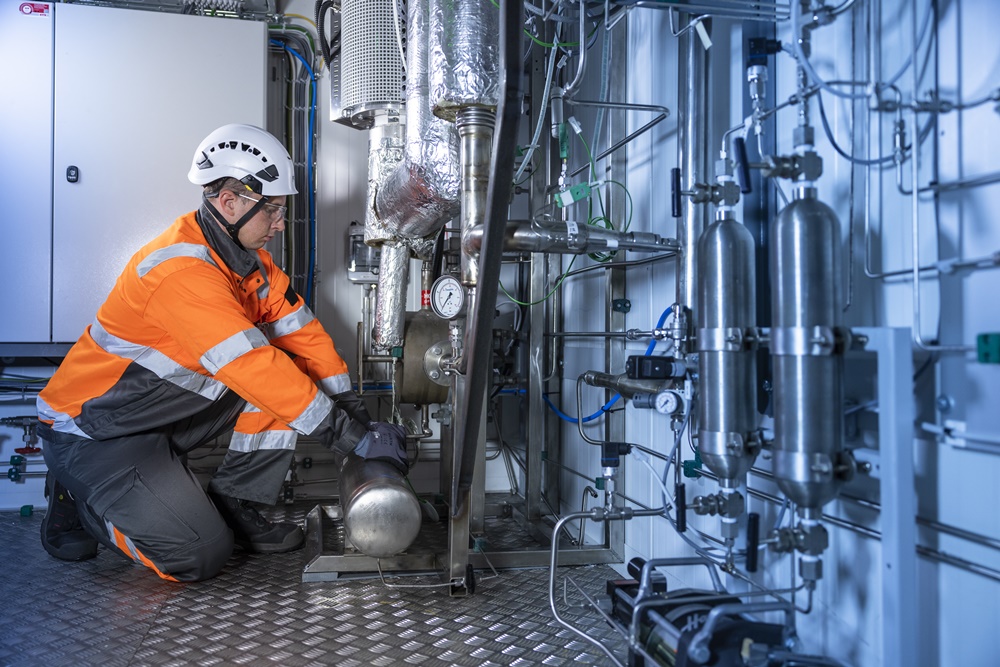NEWS
Using CO2 emissions from industry to make climate-friendly plastics
Reducing industrial carbon dioxide emissions plays a key role in the fight against climate change. Utilization of CO2 emissions is an important means to this end. A research project coordinated by VTT examines the capture and utilisation of carbon dioxide from the forest industry and waste incineration in the manufacture of different types of plastic products. Simultaneously, process concepts will be developed to enable the commercial utilisation of carbon dioxide emissions also in other fields of industry.
Carbon from industrial emissions of carbon dioxide can be bound in the products of the plastics and chemical industries. This creates possibilities for the development of new, climate-friendly plastics and other polymeric products.
VTT has long studied the possibilities for capture and utilization of carbon dioxide in different sectors. The Forest Cump project, which was launched in August 2022, continues this work, focusing on the carbon dioxide emissions of the forest industry and waste incineration. The intended end-products would be polyolefins – polyethene and polypropene – which are present in Finnish everyday life in many products and packaging. Today these materials are manufactured almost exclusively from fossil raw materials.
Test plant to start in an industrial environment in 2024
The Forest Cump project aims at developing a processing concept which would enable the scaling of the technology up to the level of industrial production. An interim goal in the commercialisation of the process is to build a small test plant in a selected industrial environment in 2024.
“We can utilise the results of the test plant in the development and design of an industrial-scale plant. In addition to technological development, we are studying the applicability of different sources of CO2 and methods for capture and purification of CO2. We are also looking into the logistical angle linked with the transport and storage of the feedstocks – carbon dioxide and hydrogen – and the intermediate products – hydrocarbons,” says VTT Research Professor Juha Lehtonen.
Solutions are being developed together with corporate partners
The Forest Cump project is being carried out in close cooperation with company partners as part of the Business Finland's Veturi ecosystems, which promote sustainable development. Borealis is one of the Veturi companies. Forest Cump is part of Borealis’ Spirit programme, which aims at green transition in the plastics industry.
“This is a significant development project that supports our vision, in which the carbon dioxide emissions from industry could be utilised for the production of e.g. durable plastic pipes out of them, which can bind carbon for long periods of time,”, says Antti Ilves of Borealis.
Focus of previous project on poyurethane products used in construction
The Forest Cump project continues the work of the earlier Beccu project, which aimed at utilising carbon dioxide in the production of raw materials for polyurethane products such as insulation materials and industrial adhesives. The project developed technologies and a process concept for an entire value chain from the bioenergy production, and the capture of carbon dioxide, all the way to the production of chemicals and polymers. The Forest Cump project is developing further the production technology of hydrocarbon intermediates developed in Beccu.
The Forest Cump project, funded by Business Finland, is part of Business Finland's Veturi ecosystem, which develops different kinds of solutions toward sustainable development and national carbon-neutral status together with some of the most significant Finnish companies. The project was launched in August 2022 and continues through the end of 2024. Participants in the project include the leading companies Borealis, Neste and ABB, and Metsä Spring, Kemira, Vantaa Energy, Stora Enso, Kleener Power Solutions, Carbon ReUse Finland, Fortum and Essity. LUT University is a research partner, alongside VTT.
The Cump project was launched in 1 January 2020 and concluded in the autumn of 2022. The project received funding from Business Finland. Further information: beccu.fi.




